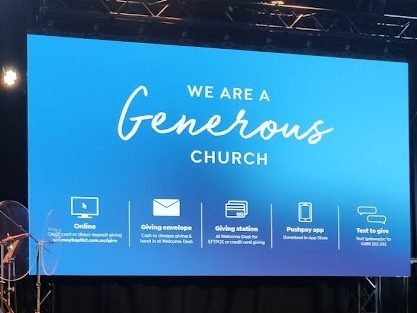The Importance of Vision
Ask for It
In a former post I related the story of my lovely daughter-in-law Natalie who was diagnosed with Stage 4 breast cancer last year. ( Prayer for Healing https://givinggenerously.com/prayer-for-healing/). At time of writing Natalie is doing as well as possible for someone with her illness but we continue to pray.

Natalie and her family have decided to take a take a holiday to London in August. Now Natalie has a clever mother, Kate, as you will see. Under Kate’s direction Adam wrote a letter.
Dear Queen
My name is Adam Irvine. I am seven years old. I live in Tarrawanna Australia. Sorry to hear the king is unwell. My mum is unwell like the king. We are coming to London in August/ September. We visit the Palace to see inside and maybe visit you both. Please it would be a wonderful surprise for my mum. Please take care of each other
Adam Irvine.
Some short time later Adam received this reply.
Thank you very much for your lovely letter. I was sorry that your mother is unwell, but I do hope that you will have a wonderful time in London in August.
I have asked my office to be in touch with you to arrange for you to visit Buckingham Palace as a surprise for your mother!
Best wishes
Camilla R
The next day Adam received a follow up communication from Queen Camilla’s staff confirming the invitation. Natalie said that her mum had always taught the family when she was growing up: “If you don’t ask you don’t get”.
Kate would not see herself as some sort of prophetess but her words have a certain similarity to those of Jesus who said in another context:
‘Ask, and it will be given to you; seek, and you will find; knock, and it will be opened to you’. Matt 7:7
It certainly takes a certain amount of boldness to write to the Queen, and I know I would not have thought to do it.
However this principle of asking is more than an open sesame to Buckingham Palace. It is true in scripture as well. There are at least three significant times where biblical leaders address God’s people and ask them to support God’s work.
- Building the temple required an enormous sum and while David does not build the temple himself, he does raise the money. I Chronicles is not necessarily one of the go-to books of the bible for devotions, but it contains some inspiring material. You can read of the upfront, bold way David addresses the issue of money for the temple in 1 Chronicles 29.
- Moses had a similar problem in raising resources for building the tabernacle. He approached the issue in the same forthright way. His request was so fruitful that he even had to ask people to stop giving because they had oversupplied the need. Ex 25:1-9 & Ex 35:4-36:5
- In the New Testament, believers in Jerusalem were in dire financial distress and the apostle Paul devoted space in a number of his letters to bringing this need before other followers of Jesus. His instructions and manner of asking in 2 Corinthians 8 & 9 have given subsequent generations a model of the theology and practice of asking for support for Christian ministry.
So don’t be backward in laying the financial needs of the ministry before your congregation. Remember the principle, ‘if you don’t ask, you don’t get’. Kate has spoken so it must be true!! And even more, remember Jesus and ‘ask, seek and knock’.
For more on raising resources for ministry, see my book: Giving Generously. https://givinggenerously.com/buy-the-book-2/



